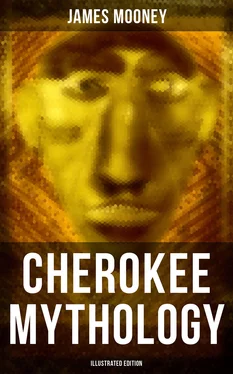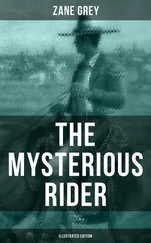Even the Georgia laws, which deny us our oaths, are thrown aside, and notwithstanding the cries of our people, and protestation of our innocence and peace, the lowest classes of the white people are flogging the Cherokees with cowhides, hickories, and clubs. We are not safe in our houses—our people are assailed by day and night by the rabble. Even justices of the peace and constables are concerned in this business. This barbarous treatment is not confined to men, but the women are stripped also and whipped without law or mercy.... Send regular troops to protect us from these lawless assaults, and to protect our people as they depart for the West. If it is not done, we shall carry off nothing but the scars of the lash on our backs, and our oppressors will get all the money. We talk plainly, as chiefs having property and life in danger, and we appeal to you for protection....321
General Dunlap, in command of the Tennessee troops called out to prevent the alleged contemplated Cherokee uprising, having learned for himself the true situation, delivered an indignant address to his men in which he declared that he would never dishonor the Tennessee arms by aiding to carry into execution at the point of the bayonet a treaty made by a lean minority against the will and authority of the Cherokee people. He stated further that he had given the Cherokee all the protection in his power, the whites needing none.322
A confidential agent sent to report upon the situation wrote in September, 1837, that opposition to the treaty was unanimous and irreconcilable, the Cherokee declaring that it could not bind them because they did not make it, that it was the work of a few unauthorized individuals and that the Nation was not a party to it. They had retained the forms of their government, although no election had been held since 1830, having continued the officers then in charge until their government could again be reestablished regularly. Under this arrangement John Ross was principal chief, with influence unbounded and unquestioned. “The whole Nation of eighteen thousand persons is with him, the few—about three hundred—who made the treaty having left the country, with the exception of a small number of prominent individuals—as Ridge, Boudinot, and others—who remained to assist in carrying it into execution. It is evident, therefore, that Ross and his party are in fact the Cherokee Nation.... I believe that the mass of the Nation, particularly the mountain Indians, will stand or fall with Ross....”323
So intense was public feeling on the subject of this treaty that it became to some extent a party question, the Democrats supporting President Jackson while the Whigs bitterly opposed him. Among notable leaders of the opposition were Henry Clay, Daniel Webster, Edward Everett, Wise of Virginia, and David Crockett. The speeches in Congress upon the subject “were characterized by a depth and bitterness of feeling such as had never been exceeded even on the slavery question.”324 It was considered not simply an Indian question, but an issue between state rights on the one hand and federal jurisdiction and the Constitution on the other.
In spite of threats of arrest and punishment, Ross still continued active effort in behalf of his people. Again, in the spring of 1838, two months before the time fixed for the removal, he presented to Congress another protest and memorial, which, like the others, was tabled by the Senate. Van Buren had now succeeded Jackson and was disposed to allow the Cherokee a longer time to prepare for emigration, but was met by the declaration from Governor Gilmer of Georgia that any delay would be a violation of the rights of that state and in opposition to the rights of the owners of the soil , and that if trouble came from any protection afforded by the government troops to the Cherokee a direct collision must ensue between the authorities of the state and general government.325
Up to the last moment the Cherokee still believed that the treaty would not be consummated, and with all the pressure brought to bear upon them only about 2,000 of the 17,000 in the eastern Nation had removed at the expiration of the time fixed for their departure, May 26, 1838. As it was evident that the removal could only be accomplished by force, General Winfield Scott was now appointed to that duty with instructions to start the Indians for the West at the earliest possible moment. For that purpose he was ordered to take command of the troops already in the Cherokee country, together with additional reenforcements of infantry, cavalry, and artillery, with authority to call upon the governors of the adjoining states for as many as 4,000 militia and volunteers. The whole force employed numbered about 7,000 men—regulars, militia, and volunteers.326 The Indians had already been disarmed by General Wool.
On arriving in the Cherokee country Scott established headquarters at the capital, New Echota, whence, on May 10, he issued a proclamation to the Cherokee, warning them that the emigration must be commenced in haste and that before another moon had passed every Cherokee man, woman, and child must be in motion to join his brethren in the far West, according to the determination of the President, which he, the general, had come to enforce. The proclamation concludes: “My troops already occupy many positions ... and thousands and thousands are approaching from every quarter to render resistance and escape alike hopeless.... Will you, then, by resistance compel us to resort to arms ... or will you by flight seek to hide yourselves in mountains and forests and thus oblige us to hunt you down?”—reminding them that pursuit might result in conflict and bloodshed, ending in a general war.327
Even after this Ross endeavored, on behalf of his people, to secure some slight modification of the terms of the treaty, but without avail.328
Table of Contents
The history of this Cherokee removal of 1838, as gleaned by the author from the lips of actors in the tragedy, may well exceed in weight of grief and pathos any other passage in American history. Even the much-sung exile of the Acadians falls far behind it in its sum of death and misery. Under Scott’s orders the troops were disposed at various points throughout the Cherokee country, where stockade forts were erected for gathering in and holding the Indians preparatory to removal (43). From these, squads of troops were sent to search out with rifle and bayonet every small cabin hidden away in the coves or by the sides of mountain streams, to seize and bring in as prisoners all the occupants, however or wherever they might be found. Families at dinner were startled by the sudden gleam of bayonets in the doorway and rose up to be driven with blows and oaths along the weary miles of trail that led to the stockade. Men were seized in their fields or going along the road, women were taken from their wheels and children from their play. In many cases, on turning for one last look as they crossed the ridge, they saw their homes in flames, fired by the lawless rabble that followed on the heels of the soldiers to loot and pillage. So keen were these outlaws on the scent that in some instances they were driving off the cattle and other stock of the Indians almost before the soldiers had fairly started their owners in the other direction. Systematic hunts were made by the same men for Indian graves, to rob them of the silver pendants and other valuables deposited with the dead. A Georgia volunteer, afterward a colonel in the Confederate service, said: “I fought through the civil war and have seen men shot to pieces and slaughtered by thousands, but the Cherokee removal was the cruelest work I ever knew.”
To prevent escape the soldiers had been ordered to approach and surround each house, so far as possible, so as to come upon the occupants without warning. One old patriarch, when thus surprised, calmly called his children and grandchildren around him, and, kneeling down, bid them pray with him in their own language, while the astonished soldiers looked on in silence. Then rising he led the way into exile. A woman, on finding the house surrounded, went to the door and called up the chickens to be fed for the last time, after which, taking her infant on her back and her two other children by the hand, she followed her husband with the soldiers.
Читать дальше












